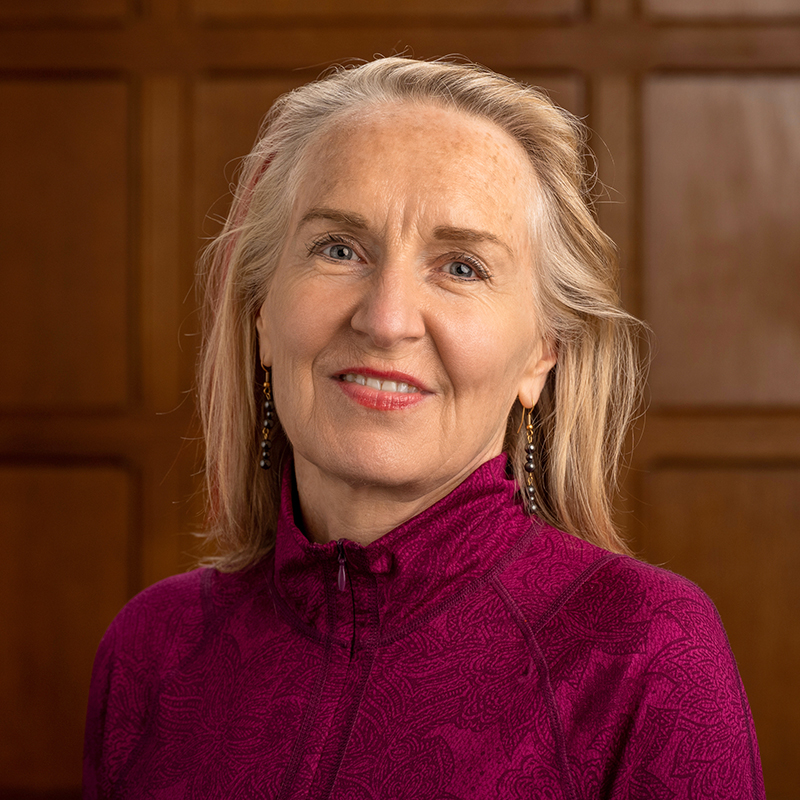Catherine Panter-Brick is the Bruce A. and Davi-Ellen Chabner Professor of Anthropology, Health, and Global Affairs. She holds a joint appointment in the Jackson School of Global Affairs and the Department of Anthropology. She is the head of Morse College and the chair of the Council of Heads of Colleges at Yale University.
Panter-Brick works in the context of humanitarian crises. She leads initiatives to develop strong, equitable partnerships across research, practice, and policy. Her research and program evaluations with Afghan and Syrian refugees are leading examples of interdisciplinary work on mental health, intergenerational stress and resilience, and family systems interventions to promote wellbeing and social cohesion in war-affected communities. She received the Lucy Mair Medal, awarded by the Royal Anthropology Institute to honor excellence in the application of anthropology to the active recognition of human dignity.
Professor Panter-Brick has published ~185 peer-reviewed scientific publications in global health and the social sciences. She has coedited eight books, notably Medical Humanitarianism: Ethnographies of Practice and Pathways to Peace to bridge research findings into teaching practice. Highly collaborative research has also led to policy briefs on sustainable peacebuilding, fathers for peace and equity, religion and social justice, and resilience. Her work has received support from the: National Institute of Mental Health (NIMH), National Science Foundation (NSF), International Organization for Migration (IMO), Elrha, British Council, British Academy, National Health Service (NHS), Economic and Social Research Council (SSRC), Wellcome Trust, Wenner-Gren Foundation, Royal Society, Leverhulme Trust, Medical Research Council, Centre National de la Recherche Scientifique (CNRS), and at Yale, from the MacMillan Center.
On the issue of peacebuilding, resilience and mental health, Panter-Brick has been a keynote speaker at the United Nations, contributed to international media broadcasts, and presented at the World Health Organization, the World Bank, and the United States Institute of Peace. Her work with Syrian refugee youth – to learn how interventions can alleviate stress, boost resilience, and improve lives in war-affected communities – is showcased in the award-winning documentary Terror and Hope: The Science of Resilience, broadcasted on PBS television network. It has been featured by Elrha, a global organization focused on research and innovation in humanitarian contexts, in impact case studies on mental health support and good practice in research.
Panter-Brick was raised by a French mother and an English father. Schooled in France and the UK, as well as in Nigeria and Zimbabwe, she studied Human Sciences and Anthropology at Oxford University. Her love for global, interdisciplinary research was forged through a secondment with the Centre National de la Recherche Scientifique, a sabbatical with the Agence Française de Développement, a visiting position at the King Faisal Specialist Hospital & Research Centre, a fellowship at St Hugh’s College, Oxford, a Professorship at Durham University, and finally, teaching, research, and program innovation at Yale.
At Yale, Panter-Brick directs the Global Health Studies Multidisciplinary Academic Program and the Peacebuilding Initiative at the Jackson School. She directs the Program on Conflict, Resilience, and Health at the MacMillan Center for International and Area Studies. She is a Past Senior Editor of the interdisciplinary journal Social Science & Medicine, and a Past President of the Human Biology Association.
Courses Taught
HLTH 490: Global Health Research Colloquium (Fall) HLTH 425/ANTH 453: Global Health: Practice and Policy (Spring)Selected Publications
See a list of published work on PubMed or download a full list of publications.
See work featured in the Yale News here, here, and here. See the short videobyte on Refugee Fathers here and the videobyte on Women Volunteering and Empowerment in English and Arabic language here and here.
See 2024 publications:
On peacebuilding, war and displacement:
2024 Intergenerational Pathways to Peace
2024 Physiological and Genomic Signatures of War and Displacement: Review
On humanitarian systems:
2024 Volunteer programs, empowerment and life satisfaction in Jordan to inform public policy (SEE VIDEOBYTE)
2024 Arts-Based Interventions for Humanitarian Workers
On Refugee-host families:
2024 Does volunteering impact refugee women’s life satisfaction, empowerment, and wellbeing?
2024 Co-parenting, mental health, and the pursuit of dignity: A systems-level analysis
2024 Father involvement and child development: A prospective study (SEE VIDEOBYTE)
On global health:
2024 Mental health during the Covid-19 pandemic
2024 Syrian refugees implementing Problem Management Plus
2024 Sustainable investment in the African pharmaceutical industry
